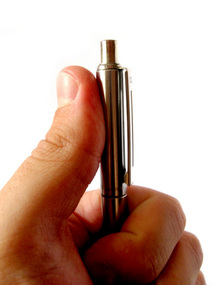Letter Writing Tips

Letters to the editors of newspapers are widely read. In fact, surveys have shown that it is often the first section which readers scan. As not only the content, but also the tone of your letter largely influence the readers’ reaction, it is a good idea to avoid sending your first draft. The more carefully you prepare, the more likely you are to be taken seriously.
Don't be discouraged by the fact that only a small percentage of letters received by editors are printed. The unpublished letters are read and can have a significant influence on the editor and journalists. Don't underestimate the importance of the unpublished letters.
When the media receive a large number of letters on the same issue the chances are greater that at least one or more will be published. It also gives the media feedback on readers' views and reactions.
Be prepared for the likelihood that your letter will be edited. Often, but not always, the editing results in an improved letter with more impact.
Below are a few guidelines:
For a list of places to submit your letters, check our contact addresses.
Don't be discouraged by the fact that only a small percentage of letters received by editors are printed. The unpublished letters are read and can have a significant influence on the editor and journalists. Don't underestimate the importance of the unpublished letters.
When the media receive a large number of letters on the same issue the chances are greater that at least one or more will be published. It also gives the media feedback on readers' views and reactions.
Be prepared for the likelihood that your letter will be edited. Often, but not always, the editing results in an improved letter with more impact.
Below are a few guidelines:
- Always include your full name, address, phone number and e-mail address. You may nevertheless add a note asking that the letter be published under a nom de plume (pen name) and that your address not be published.
- When writing by email, remember that many organizations do not open attachments for fear of viruses. If you have prepared your letter in Word or another word processor, copy and paste the entire letter into the body of your email.
- Newspapers receive hundreds of letters a day so brevity is very important. Start with a first extensive draft setting out your ideas. Then, mercilessly prune all unnecessary wording and tidy the language, focusing on one major point, which should be made as early as possible. Aim at 150-200 words for most publications. The letters page of a particular newspaper will give an idea of the letter length it considers acceptable.
- Never ever be abusive if you wish to be taken seriously. Abuse and name-calling may relieve your own frustrations and anger, but will not contribute one iota to the reader’s understanding of your reasoning... A calm genuinely sincere approach will generally open the door to communicating with your reader.
- Offer genuine praise and understanding where possible. Avoid generalizations.
- Your credibility is important. Don't make statements you can't support. If the article you are addressing contains several negative or erroneous statements and one positive argument, you may find it useful to refer to the one positive aspect and compare it with the others.
- In the interests of your credibility, make sure of your facts. Accuracy is essential.. A great amount of factual information is available on the internet web, but it is essential to carefully select reliable sources as the web also contains a lot of drivel. Google and other search engines are extremely useful. If you are unsure, check different types of sources. Don’t forget to cite your sources.
- Share your letters with CoHaV so as to enable others to use valuable points which you raise in their own hasbara efforts.
- If your letter is intended for publication, add the words "For Publication" in the heading.
For a list of places to submit your letters, check our contact addresses.
